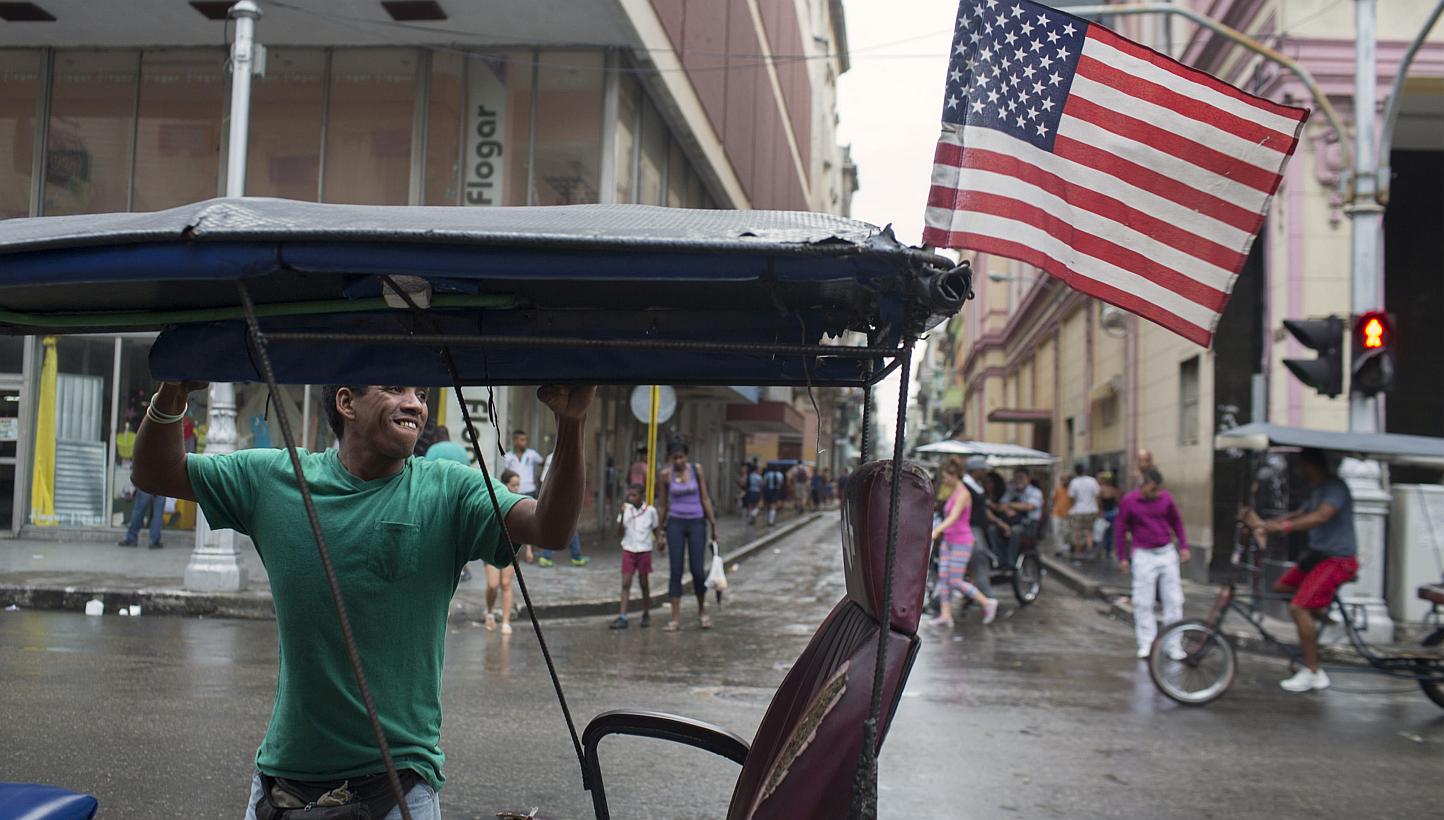Cuba and US open groundbreaking talks in Havana to end decades of animosity
Sign up now: Get ST's newsletters delivered to your inbox

Bici taxi driver Yosvani Gomes, 39, lifts the curtains of his vehicle after a rain in downtown Havana Jan 20, 2015. The United States and Cuba opened two days of historic talks in Havana on Wednesday to end decades of Cold War-era animosity and reestablish diplomatic relations. -- PHOTO: REUTERS
HAVANA (AFP) - The United States and Cuba opened two days of historic talks in Havana on Wednesday to end decades of Cold War-era animosity and reestablish diplomatic relations.
The meetings in Havana follow the historic decision by US President Barack Obama and Cuban leader Raul Castro in December to seek normal diplomatic relations.
US deputy assistant secretary of state Alex Lee and Cuban foreign ministry official Josefina Vidal sat down for the first day of closed-door talks in the capital's Convention Centre, which will focus on migration issues.
Their opening remarks were not broadcast.
The reopening of mutual embassies, closed since relations broke in 1961, will be at the centre of Thursday's talks, which will be led on the US side by Roberta Jacobson, the US assistant secretary of state for Western Hemisphere affairs.
Jacobson will be the highest-ranking American official to visit the communist island since 1980 when she lands later Wednesday.
On the eve of the talks, US President Barack Obama urged the Congress to end the decades-long embargo against Cuba, which the Castro regime has blamed for the country's economic woes.
"In Cuba, we are ending a policy that was long past its expiration date," Obama said in his annual State of the Union speech late Tuesday.
"When what you have done doesn't work for fifty years. It's time to try something new," he said.
A Cuban foreign ministry official sought to downplay expectations of major breakthroughs this week.
"We can't expect that everything will be resolved in one meeting," the official said, according to state media.
"The normalisation of relations is a much longer and complex process in which we must discuss issues of interests for both sides."
MIGRATION, EMBASSY NEGOTIATIONS
The migration talks will tackle an issue that has vexed both nations for years, with Cubans regularly hopping on rickety boats to reach Florida, 145km away.
Gustavo Machin, a Cuban delegation official, told reporters his government expressed concerns about the US "wet foot, dry foot" policy, complaining that it was the "main stimulus for illegal emigration" to the United States.
The policy gives Cubans who reach US soil quick access to permanent residency while those caught at sea are deported back to their island.
The United States has seen a surge of Cuban migrants who apparently fear that the US-Cuba negotiations will end the policy.
The number of sea intercepts doubled in December compared to the previous year.
Machin said the first day of talks, due to finish later in the morning, were "constructive" so far but that the two sides "agree that we disagree" on migration issues.
A US official also downplayed expectations of agreements on Wednesday.
"I wouldn't look for any specific deliverables," the official told AFP. "This is part of ongoing consultations (on migration)."
Both nations currently have "interests sections" in each other's capitals.
In a throwback to Cold War days, a Russian spy ship docked in Havana on the eve of the talks.
CUBANS HOPEFUL
Ordinary Cubans hope the rapprochement will improve their lives in a country where supermarket shelves often lack basic goods and people make US$20 (S$26) a month on average.
"Things could change for the better, giving us a little more than what we normally have in the material and spiritual sense," said Dayron Herrera, 27, an artist who was drawing Old Havana while sitting on a street near the capital's Cathedral.
The island's dissident community has had a mixed reaction, thanking Obama for his attempt to improve their country while voicing concern that too much was conceded to the Castro regime without getting much in return.
In the US Congress, some lawmakers have criticised Obama's decision, with Republican Senator Marco Rubio, a Cuban-American, saying it was "enriching a tyrant and his regime."
The two countries have already taken steps to thaw their once glacial relations.
The Cuban government completed this month the release of 53 political prisoners demanded by Washington.
Days later, the US Treasury Department eased travel and trade restrictions, though the US Congress has final word on lifting the embargo, which prevents US tourism.


